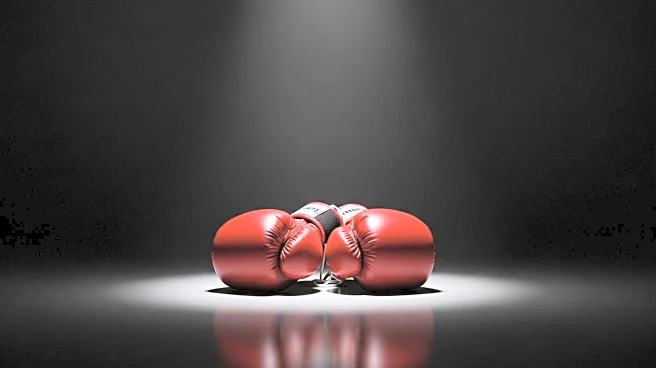What's Happening?
Ricky Hatton, a renowned British boxer and former world champion, has passed away at the age of 46. The World Boxing Association confirmed his death on Sunday. Hatton was found unresponsive at a residence in Greater Manchester, England. The local police received a call from a member of the public at 6:45 a.m. and upon arrival, discovered the body of a 46-year-old man. The police have stated that there are no suspicious circumstances surrounding his death. Hatton retired from professional boxing in 2012 after a successful 15-year career, during which he won the World Boxing Association light-welterweight titles and welterweight world championships. He concluded his career with a record of 45 wins, 3 losses, and 32 knockouts in 48 bouts.
Why It's Important?
Ricky Hatton's death marks the loss of a significant figure in the world of boxing. Known for his aggressive fighting style and charismatic personality, Hatton was a beloved sports figure in the UK and internationally. His career achievements contributed to the popularity of boxing, inspiring many young athletes. The news of his passing is likely to resonate deeply within the boxing community and among sports fans worldwide. Hatton's legacy extends beyond his titles, as he was also known for his contributions to the sport through training and mentoring young boxers after his retirement. His death may prompt discussions on the pressures faced by athletes during and after their careers.
What's Next?
In the wake of Ricky Hatton's death, tributes from the boxing community and fans are expected to pour in, celebrating his life and career. There may be memorial events organized in his honor, reflecting on his impact on the sport. Additionally, discussions around athlete mental health and post-retirement support could gain traction, as the sports world reflects on the challenges faced by retired athletes. The investigation into his death will continue, although no foul play is suspected, to provide closure to his family and fans.
Beyond the Headlines
Ricky Hatton's passing may also highlight the broader issue of athlete well-being, particularly focusing on the transition from active sports careers to retirement. The pressures and lifestyle changes associated with leaving professional sports can have significant impacts on mental health. Hatton's death could serve as a catalyst for increased support systems for retired athletes, emphasizing the importance of mental health resources and community support.










